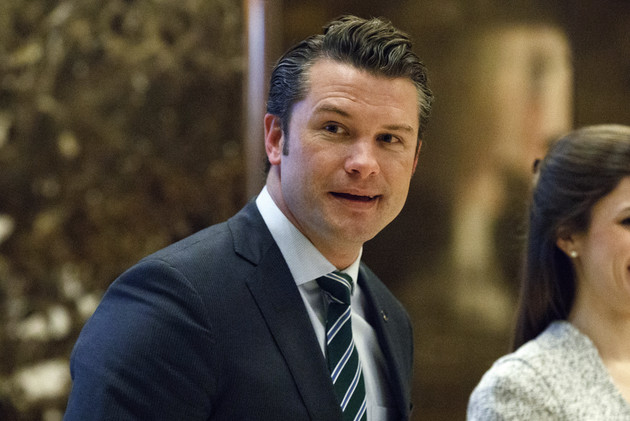Pentagon Inspector General Launches Investigation Into Defense Secretary Pete Hegseth’s Use of Signal App
Defense Secretary Pete Hegseth is now under formal investigation by the Pentagon Inspector General for his use of the encrypted messaging app Signal to discuss sensitive military matters, including U.S. strikes on Houthi targets in Yemen. The inquiry follows mounting bipartisan concerns over the use of unsecured communications platforms for official Department of Defense business.
Background: Use of Signal Sparks Scrutiny
The investigation was prompted by a March 26, 2025, letter from Senate Armed Services Committee Chairman Roger Wicker (R-MS) and Ranking Member Jack Reed (D-RI). The senators cited reports that Hegseth had used Signal to discuss real-time military operations with top officials, raising alarms over adherence to classification, records retention, and secure communication protocols.
On Thursday, Acting Inspector General Steven Stebbins released a memorandum confirming the launch of the evaluation:
“We are conducting this evaluation in response to a March 26, 2025, letter… requesting that I conduct an inquiry into recent public reporting on the Secretary of Defense’s use of an unclassified commercially available messaging application to discuss information pertaining to military actions in Yemen in March 2025,” Stebbins wrote.
The evaluation will assess:
- Whether Hegseth and other DoD personnel complied with policies on the use of commercial apps.
- Whether classification and records retention rules were violated.
- Whether any sensitive or operationally critical information was disclosed inappropriately.
Signal Group Chat Raises Red Flags
The controversy, widely dubbed “Signalgate”, intensified after reports revealed that National Security Advisor Mike Waltz added The Atlantic editor Jeffrey Goldberg—a civilian journalist—to a private Signal group chat where Hegseth and others were allegedly discussing the aftermath of U.S. airstrikes in Yemen.
While Goldberg was reportedly removed from the group after the mistake was discovered, the lapse has raised significant concerns about information security and administrative oversight.
In response to mounting media criticism, Hegseth pushed back against allegations that war plans were discussed, stating:
“They even changed the title to ‘attack plans,’ because they know it’s not war plans. It was a small, high-level Houthi PC group where no classified material was shared.”
Additional Allegations: Hegseth’s Wife Attending Official Meetings
Compounding the scrutiny, The Wall Street Journal reported this week that Jennifer Hegseth, the Secretary’s wife and a private citizen, was present during two meetings involving senior foreign defense officials, including one with U.K. Defense Secretary John Healey in early March.
According to sources, sensitive information may have been discussed during these sessions, raising new questions about protocol breaches and potential ethical violations. The Department of Defense has not yet commented on these reports.
Political and Institutional Fallout
Pete Hegseth has faced sustained opposition since his nomination, with critics citing his confrontational style, controversial public statements, and ongoing leaks of internal deliberations. This latest investigation places him under even greater pressure as Congress continues to apply oversight to Trump-era defense and intelligence policies.
While the Inspector General’s review is in its early stages, the outcome could have lasting implications for:
- The handling of classified information by senior officials.
- The role of private messaging apps in defense communications.
- Norms around family participation in high-level government business.
What’s Next?
IG Stebbins indicated that the scope of the investigation may evolve as new information is uncovered. The evaluation will be conducted under federal inspection and evaluation standards, with results expected to be shared with Congress.
Hegseth, for now, remains in his post with the backing of the White House. However, as the inquiry deepens and media revelations continue, political and institutional pressure is likely to intensify. The investigation may shape not only the future of Hegseth’s tenure but also broader national security communication practices across the Department of Defense.

